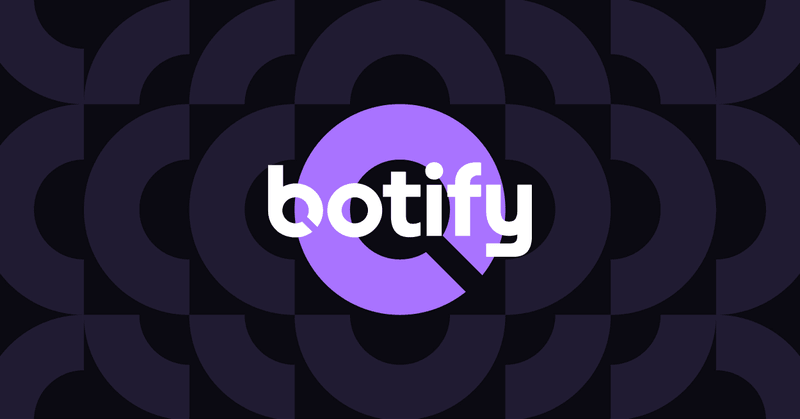
As marketers venture into the time of year that typically propels preparation for Black Friday and the holiday shopping season, the busiest for many industries, this year will inevitably be different from years prior in many ways.

Today's uncertain climate makes it harder to anticipate and plan for seasonal dynamics and customer response, but we've detected five trends that emerged due to COVID-19 that we think are here to stay.
- Online shopping isn't going anywhere
- Promotions will draw in price-sensitive consumers
- People will continue to stay at home more
- Conscious consumers will prioritize transparency & trust
- Company values and social responsibility will play a starring role
1. Online shopping isn't going anywhere
As the pandemic spread and countries began their lockdowns, consumers didn't stop buying -- they just changed how and what they were buying. Consumers were already getting more comfortable with shopping online (14% of total retail sales, up from 12% the year prior); the pandemic just accelerated it. For example, Shopify reported 47% growth in sales compared to last year.
We think that type of growth is here to stay.
People from all generations are shopping online
Generational barriers have also blurred due to in-store shopping restrictions as well as the fact that businesses have had to shift their online experiences to be accessible to the vulnerable. Statistics (France) show how the share of first time online shoppers have increased, driven by Baby Boomers (people born before 1960, considered to be the most vulnerable to COVID-19).
When lockdown ends, people will still be buying online
Insights originally published on econsultancy found that about 40% of UK shoppers said they are likely to make more online purchases when lockdown ends, while only 6% of them claim they would make an effort to shop more in-store and there's an expected 3-6% increase in online market share that's here to stay according to early lessons from China.
Online-first businesses may see substantial growth
Online-first businesses may also experience significant growth post-pandemic like we saw after SARS -- in 2003, Alibaba's daily memberships and listings increased 3.5x, and that was when e-commerce wasn't nearly as sophisticated as it is today.
The internet has truly never been more important to our day-to-day experience, and with that, businesses have an opportunity to accelerate their organic traffic growth.
This online growth, however, also means increased competition and that is especially true in the case of SEO. The real winner of organic growth already is Google and they will continue to focus on improving search results for users. This means that your content has to be relevant. Getting SEO right now is more important than ever.
And what does this all mean for customer experience?
Just as important as getting SEO right is getting the visitor experience right, according to Hamish Bones of customer experience optimization (CXO) company AB Tasty. Without SEO, you won't drive shoppers to your site, and without CXO, you won't drive revenue from those visits.
"All companies, not just pure-players, are now building digital strategies with budgets previously laid out for offline," said Hamish. "The biggest challenge will be to concentrate on the right KPIs and prioritize the roadmaps, working closely across digital marketing and content teams to get the best performance possible with the least amount of resources and time required."
2. Promotions will draw in price-sensitive consumers
According to McKinsey, the Coronavirus is expected to have the largest economic impact since World War II.
COVID-19 has led to budget cuts and unemployment -- for example, just 50% of the working-age population in the United Kingdom were working as usual at the beginning of April, compared to the 75% that's working usually. This was mainly due to 20% being furloughed and about 5% being off sick, in isolation, or newly unemployed.
This employment volatility could potentially cause a long-term shift in price sensitivity, which could mean an increased interest in promotional offers, but this will differ by sector. My prediction is that there will be an increased interest for sale items in essentials, but products in non-essential categories will be impacted by other trends such as values or social responsibility.
Hamish also weighed in from the visitor/customer experience angle:
"The immediate response for a lot of industries has been to run continuous promotions over the last few months. With Media and Publishing, there has always been a strong argument to run promotions for new subscribers, however subscribers value the content they receive over the promotion itself.
For example, USA Today, Le Parisien, and Les Echos all use AB Tasty to run experimentation programs that focus on the customer journey for unsubscribed users and show the real value for paid subscriptions.
Retailers have been running almost non-stop promotions since going into lockdown, however, is this actually having an impact on revenue?
Promotions are powerful ways to engage users and drive them to convert, but it is important not to get stuck into a promotion-only cycle.
The key is to use not just the data on promotions, but blend this into your customer data and analytics funnel to identify your exit points. A consumer that converts with no promotion is going to be worth a lot more to you than the one who used a promotion."
3. People will continue to stay at home more
Looking at our data, we learned that stay-at-home orders increased interest in indoor and outdoor activities such as cooking, exercise, and DIY projects. That shift was almost immediate.

However, we think people are less likely to go out even once restrictions are lifted.
There are a few reasons for this:
- Less disposable income
- More flexibility to work from home
- Ongoing safety concerns
- Limited capacities in shops and bars
- Newfound interests in home and outdoor hobbies
- The desire to visit the homes of our family and friends after restrictions are eased
I think it will be crucial for SEOs to monitor their query data for these trends to understand how search is shifting, because humans are creatures of habit. We've had no other choice but to develop new interests and routines, and once these become habits, they are likely to stay.
It'll be interesting to see how this affects industries such as hospitality, and how they adapt, since not being at home is an inherent part of travel.
We've already seen how many bars and restaurants started to focus on take-out, curbside pickup, and deliveries, but is there a growing interest to seek out more than just a transactional exchange? Would people want their favourite bars to provide online cocktail classes on their websites or promote small scaled events via local SEO? Would people seek out if local restaurants also sell the best authentic ingredients for their specialties, providing Click and Collect to manage their stock? I think we've all seen examples of this to an extent already and I'm interested to see what's to come.
Hamish also added that "having the same messaging throughout the user journey is critical" which means that SEO teams and Experimentation/Personalization teams will need to work together in order to ensure everything is cohesive.
4. Conscious consumers will prioritize transparency & trust
New data from Zendesk reported a 24% increase in weekly customer inquiries handled by support teams from last year. Spikes in calls and support tickets also correlated with total confirmed COVID-19 cases and related government announcements.
If your customer support team is busier than ever, what should you do?
Let's take a look at this example from the travel industry, where many customers are looking for refunds. Instead of short-term thinking, which would lead travel companies to make the refund process confusing and laborious in hopes of not losing revenue, long-term thinking says to make the process transparent even if you lose money, as it will promote future loyalty.
So, even though businesses are having to change their delivery and refund policies on a dime, and even though they likely have fewer employees to address those needs than ever, how brands decide to manage their customers right now could have long-lasting effects.
But what can SEOs do to promote transparency and build trust?
One way we can show our website's trustworthiness and stay in the search engine's good graces is to prioritize HTTPS/SSL protection, which has been a priority of Google's for years.
Search engines also use factors like reviews, about pages, websites we link to, and the relevance/expertise of our content as indicators of trustworthiness.
Serving trustworthy content to searchers not only protects searchers, but also protects the search engine's reputation.
And on the UX/CXO side, Hamish thinks that it'll be critical for brands to be able to "see the right customer analytics and get a detailed breakdown of transactional data for every user (always following GDPR of course)" in order to know how to promote trust and add value for each unique customer.
5. Company values and social responsibility will play a starring role
It's not enough for businesses to comply with all pandemic-related regulations -- that's table stakes. It's about whether they're living up to their values as a result that consumers will be paying extra attention to.
Companies, depending on size and impact, were forced to react quickly in response to COVID-19. For example, Google and Bing implemented new SERP features using COVID-19 related structured data, Twitter launched hashtags such as #KnowTheFacts to help their users find reliable information and fight fake news, Amazon was ordered in France to prioritize the delivery of essential items -- and those are just a few examples.
Because these decisions have a near immediate impact on our day-to-day life, consumers are holding companies to a higher standard, which I don't think is likely to go away.
It will be interesting to see how not only search queries change in light of this, but how search engines change in response.
On the searcher side, I expect to see a longer research phase before searchers making buying decisions, leading to increased traffic and engagement with content.
And on the search engine side, we've already seen how Google made it free to appear on their Shopping tab, something they were already planning on doing but accelerated because of COVID-19. They've also offered technical support to health organizations, which would have long term positive impacts in information quality as well as their local news support fund.
As searchers do start to perform more research before buying, Hamish thinks that companies should proactively share key messages with on-site visitors -- things like their commitment to your health and safety, and COVID-19 delivery information.
"Getting this correct is critical, and I think this type of risk mitigation will be a priority across all teams, demonstrating that CXO will have a bigger influence for the foreseeable future."
Embrace change to adapt for the future
At the end of the day, we know that this pandemic has caused some fundamental changes globally. As SEOs, we're used to not only change but also figuring out creative ways to react to that change.
But adapting is only possible if we have reliable data, which isn't always easy to find, as Lily Ray called out in her recent Traffic Think Tank presentation. For example, keyword tools that check for monthly search volumes won't give you a realistic picture of how searcher behaviour is changing -- you need that keyword data in real time. You also need to be able to pivot your on-site experience to match that current demand.
We know the importance of data, adapting to changing searcher intent, and catering to your audience at every stage of their journey. If you'd like to explore that topic further, check out this on-demand webinar I co-hosted with Hamish where we take a deep dive into the customer experience, from search to transaction.

.svg)



.svg)


.svg)
.svg)

